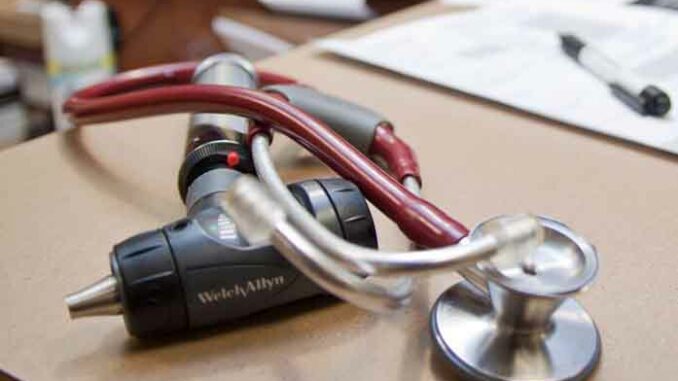
PHOENIX – Two Valley health care providers are trying to eliminate the stigma that comes with HIV testing.
On Tuesday, Spectrum Medical Care partnered with Walgreens to offer free HIV tests in midtown Phoenix.
Edward Castro was one of the 122 people tested on National HIV Testing Day. He described the experience as fast, easy and safe.
“They make it very comfortable for you to be able to get tested with no judgment,” he said. “We should all know our status, no matter what it is.”
Castro, who works as a DJ at a local nightclub, said he urges his friends and followers to know that it’s OK to get tested.
According to data from AIDSVu, in 2020 there were 12,139 people living with HIV in Phoenix, including 337 people who were newly diagnosed. The data also showed that 2,588 people of every 100,000 in the 85012 ZIP code are living with HIV, the highest rate in Maricopa County. The ZIP code is between Thomas Road and Glendale Avenue, from Central Avenue to Seventh Street. AIDSVu is an online mapping tool that shows the impact of HIV infections on communities in the U.S.
Maricopa County is one of 48 counties in the country identified by the Centers for Disease Control and Prevention as having the highest HIV prevalence rates.
“We continue to see an increase in HIV infections here in Arizona, but particularly in Maricopa County,” said Victor Avila, director of community relations for Spectrum Medical. “So this is really one of the target areas for the federal government to ensure people are getting tested, knowing their status, and providing them with resources so that they either stay HIV negative or if they are HIV positive, we can get them treatment.”
He said HIV is not a disease that only impacts gay men, but can affect anyone who is sexually active or shares needles.
The CDC recommends that everyone between the ages of 13 and 64 get tested at least once in their lifetime as part of routine health care.
Spectrum also offers free testing with a mobile unit and a Testing After Dark program, which provides tests for HIV and sexually transmitted infections.
Valleywise Health Medical Center has provided free HIV testing since 2011, offering it to every patient who comes into its emergency department. Free at-home kits also are available.
Opt-out HIV testing is provided at Valleywise’s 12 community health clinics, meaning all patients are tested unless they opt out. Jason Vail Cruz, senior practice manager for Valleywise, said after coordinators began educating patients about the benefits of testing, the number of tests skyrocketed. He said the clinics completed 300 finger stick tests and 2,000 blood draws for testing in 2020. Within a year, they were doing 2,000 finger stick tests and 9,000 tests through blood draws.
“We really saw tremendous growth with that, and we continue to work every single day with our providers … to make sure they’re having important conversations about HIV testing and about PrEP,” Vail Cruz said. PrEP is a pre-exposure medication that can reduce a person’s chance of getting HIV from unprotected sex or injection drug use.
He said it is important for people to know their status and for medical providers to understand exactly what’s happening with the people they’re treating.
Vail Cruz said there are still a lot of misconceptions about HIV and what it means to be diagnosed with it.
“HIV is different than it was back in the 1980s and early ‘90s,” he said. “Now it can be a very manageable illness. It is still a chronic illness, which means that there’s not a cure currently. However, if folks get into care and take their medication regularly, then they can reach a point where they’re called undetectable.”
That means the virus is undetectable in the bloodstream, Vail Cruz said, and they are no longer contagious for HIV.
At the Spectrum event at the Central Avenue and Osborn Road Walgreens, those who were tested received a $25 Walgreens gift card, some free merchandise and information. Avila said the day was meant to normalize testing.
Castro, the DJ, said he gets tested every 90 days because “HIV can creep up on you, no matter if it was two years ago, one year ago.”
“It’s important to get tested, no matter what the results may be because in this day and age, there are preventative medications that will be able to help you live a great healthy life, no matter what your status is,” he said. “So don’t be discouraged to get tested. Don’t listen to the stigma. There are people out there that help you, and no matter what your status is, you could still live a normal healthy life.”
